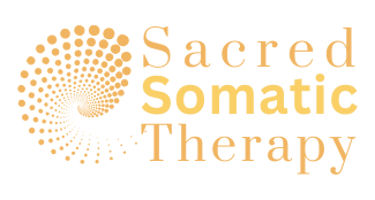
What to Expect From Somatic Therapy
somatic therapy & nervous system support
Somatic therapy works with neuroplasticity and your nervous system responses, so it requires repetition and integration over time.
I work with clients short term (6-12 sessions) or long-term.
Each somatic session is 75 or 90 minutes, giving us time to slow down and listen. We begin by checking in with what’s present for you — not just your thoughts, but the sensations, movements, and impulses in your body.
If you're coming in for trauma work, there’s no pressure to tell your whole story or revisit every detail of traumatic events.
However, you don't have to be in crisis to explore somatic therapy. You can bring a topic to work on: something that happened this week, a deeply held desire, or an ongoing frustration.
Together we will:
Track sensations in real time (like tightness, warmth, shakiness, or numbness), supporting release of long-held emotions and incomplete survival responses.
Move at your pace, with consent, adjusting as needed and prioritizing a felt sense of safety
Help you read the patterns of energy, bracing, and movement that are wanting to be expressed through your body
Explore simple somatic practices to regulate your nervous system and explore what's held in the subconscious mind (and body)
Explore resolution of the patterns that arise, without forcing or rushing
I'm here to help you slow down and interrupt patterns of overthinking and self-analysis.
When we do talk about traumatic events, we do so in a way that respects your sensitivity and the timing of your nervous system.
As people process old emotions and survival responses that have been suppressed they report feeling lighter, more empowered, more energized and more clear.
Some types of somatic experiences you can expect are:
Burping, yawning or sighing
Sensations of tingling, hot or cold rushes
Emotional release, including crying or anger
Shaking or trembling
Feeling heavy or exhausted
Feeling lightness and expansive
After sessions:
You may feel tired or drained, but often people report feeling lighter, clearer and more connected to themselves.
Emotions will likely come up between sessions, or things you want to reflect on next time.
Integration is key - after our sessions, your homework is to rest, do something supportive for yourself, and let yourself be open to the changes as your neural pathways re-pattern.


"From the very first session, I felt a sense of safety & understanding that was deeply comforting.
Andree has a remarkable ability to listen without judgement. Throughout our sessions, I've gained valuable tools to handle my anxiety and improve my life in all areas.
Each appointment feels like a step forward in a journey of self-discovery and healing.
FAQ
What can somatic therapy help with?
Somatic therapy supports anxiety relief, trauma healing, chronic pain, stress relief, emotional regulation, physical tension, burnout, and relationship challenges. It can help you connect with your body, complete survival responses and release stored emotions and rebuild nervous system resilience.
How many sessions will I need?
I prefer to work with people long term. We start with weekly sessions for one month, and after the first session you will know if it is right for you. Many clients benefit from ongoing work for lasting change, but after the first month, we’ll review and determine the best path forward.
How is a somatic therapist trained?
Relational Somatic Therapists are trained in specialized trauma therapy techniques, attachment theory and other body-centered approaches, including a specialized polyvagal nervous system focus.
Do you offer Clinical Somatic Exercises?
I am currently in an advanced 2.5 year training for certification as a Clinical Somatic Educator, and can bring Clinical Somatic Exercises for chronic pain into our sessions upon request.
Do I need experience with somatics before I start?
No, I will explain everything as we go along, and we will collaborate to find an approach that works for where you are at.
What does a typical session look like?
Each session is unique and may involve guided attention to bodily sensations and body language, visualization, and somatic practices. We will sit together and talk about what you're feeling, working with mindfulness & movement alongside reflective conversation.
Frequently Asked Questions

Still have questions? Send me a message.
To request a consult by email, fill out the form below. and I will connect with you to book.
We will answer your questions and talk about what you are looking for. There is no pressure to commit, just a conversation to see if we're a good fit.
